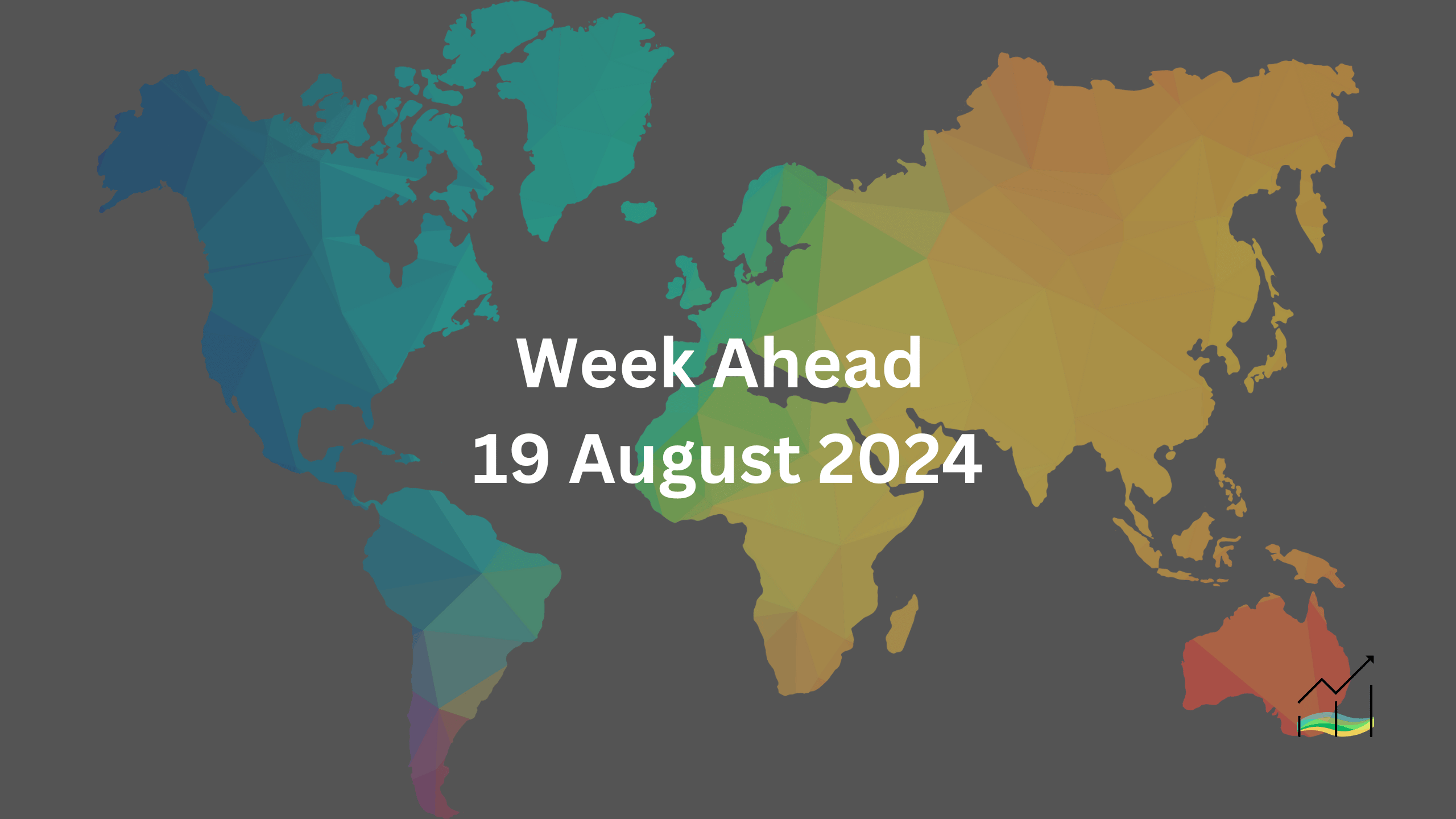19/08/2024 Market Analysis

Week Ahead: The Jackson Hole Symposium
Generally known as Jackson Hole, it is an annual conference of global central bankers.
This year’s topic is Reassessing the Effectiveness and Transmission of Monetary Policy. All eyes are on the Jackson Hole Symposium as markets anticipate imminent Federal Reserve rate cuts.
PMIs take the lead for European economies, with surveys assessing the level of confidence among consumers.
United States of America
Jackson Hole Symposium as a Market Focus
The Federal Reserve Bank of Kansas City’s annual Economic Policy Symposium in Jackson Hole, scheduled for August 22-24, is set to be a crucial event. Investors are keenly watching for signals that may reveal the future path of interest rates.
Market Reactions to Economic Data
Earlier this month, weaker-than-expected U.S. nonfarm payroll data sparked concerns about a potential recession, leading markets to ramp up bets on interest rate cuts. However, stronger economic data has since reduced these expectations, with markets now pricing around 60 basis points of cuts for the year.
Fed’s Potential Rate Cut Indications
According to Bank of America analysts, the Federal Reserve may signal the start of rate cuts as early as September. However, the magnitude and timing of these cuts will be contingent on incoming economic data. The analysts also mentioned that the market has largely priced in this outcome, making it unlikely to cause significant surprises.
Insights from Fed Chair Powell and Meeting Minutes
Fed Chair Jerome Powell is expected to align with market expectations and not push back against the pricing for rate cuts. Additional insights into the Fed’s future policy may be gleaned from the latest meeting minutes, which will be released on Wednesday.
Key Points:
- The Jackson Hole Symposium is a key event for interest rate guidance.
- Mixed U.S. economic data has influenced rate cut expectations.
- The Fed may signal rate cuts in September, but the outcome is data-dependent.
- Powell is expected to align with market expectations on rate cuts.
- Key data releases and Treasury auctions are on the calendar for the coming week.
Australia & New Zealand
RBA August Meeting Minutes Release
On Tuesday, the Reserve Bank of Australia (RBA) will release the minutes from its August policy meeting. These minutes are expected to provide insight into how close the RBA came to raising interest rates. ING suggests that the decision was likely a close call.
RBA’s Stance on Interest Rates
RBA Governor Michele Bullock addressed a parliamentary committee, noting that while money markets are predicting an interest-rate cut before the year ends, the likelihood of such a move is low. The RBA board has communicated that it is too early to consider cutting rates.
Inflation Concerns and Rate Cut Outlook
Bullock emphasized that inflation remains too high and, in underlying terms, is not expected to return to the target band until the end of next year. She noted that while conditions could change, the current outlook does not support a near-term rate cut.
Key Points:
- RBA minutes will provide details on how close the bank was to hiking rates in August.
- Governor Bullock indicated that rate cuts are unlikely in the near term due to high inflation.
- Australia’s PMI data and New Zealand’s trade and housing figures are key economic indicators to watch this week.
Canada
Canadian Inflation Data for July
On Tuesday, the spotlight will be on Canadian inflation data for July, as it will be closely watched in anticipation of the Bank of Canada’s (BOC) upcoming meeting on September 4. In July, the BOC reduced interest rates by 25 basis points to 4.5%, continuing the rate-cutting cycle that began in June.
BOC’s Inflation Outlook
The BOC noted that broad price pressures were easing and that inflation was projected to approach its 2% target. In line with this, annual inflation dropped to 2.7% in June, down from 2.9% in May.
Key Points:
- Canadian inflation data for July is crucial ahead of the BOC’s September 4 meeting.
- The BOC cut rates by 25 basis points in July, with inflation expected to approach the 2% target.
- Retail sales figures will also be a key focus this week.
Europe
Challenges Facing Germany and France
Weakness in Germany and uncertainty in France, the eurozone’s two largest economies, have weighed heavily on economic activity and confidence throughout the summer. Economists are not expecting many positive signs in Thursday’s closely monitored purchasing managers’ surveys (PMIs) for the bloc’s manufacturing and services sectors.
Anticipated Decline in PMIs
Further declines in the PMIs are expected this month. Additionally, later on Thursday, the EU’s consumer confidence surveys will provide deeper insights into sentiment across the eurozone.
Eurozone Inflation and Policy Concerns
Earlier in the week, data is expected to confirm that inflation in the eurozone increased last month. This development poses a challenge for policymakers who are trying to avoid a hard landing, especially as economic growth lags behind that of the U.K. and U.S.
Upcoming German Bond Auctions
Germany is set to auction 1.5 billion euros in green bonds dated for 2033 and 2050 on Tuesday, followed by 4.5 billion euros in conventional bonds dated for 2034 on Wednesday.
Key Points:
- Germany and France’s economic struggles are affecting overall eurozone confidence.
- PMIs are expected to decline further this month, signalling ongoing challenges.
- Inflation in the eurozone is likely to have risen, complicating the policy outlook.
- German bond auctions are scheduled for Tuesday and Wednesday this week.
Japan
Upcoming Data Releases
Japan will release key economic data this week, including trade figures on Wednesday and inflation data for July on Friday, August 23. These releases come after preliminary estimates showed that second-quarter GDP growth surpassed expectations.
Inflation Expectations
Economists anticipate that inflation will have increased, as indicated by Tokyo’s inflation print. Core consumer prices excluding fresh food are expected to have risen by 2.7% in July compared to a year earlier, up from 2.6% growth in June.
Impact of Subsidies and Consumer Spending
Economists expect that the removal of subsidies will contribute to higher inflation figures for July. However, they note that these subsidies will temporarily return later. Price pressures may take time to solidify, especially given the current fragility of consumer spending.
Trade Data and Currency Influence
Bank of Japan Governor Kazuo Ueda is scheduled to attend special parliamentary sessions on Friday, August 23. He will testify before the lower house in the morning and the upper house in the afternoon, addressing lawmakers’ queries about the central bank’s decision on July 31 to raise interest rates to 0.25%. This decision led to a significant drop in stock prices and a sharp appreciation of the yen.
Japanese Government Bond Auction
Japan’s Finance Ministry will conduct an auction of one trillion yen in 20-year Japanese Government Bonds (JGBs) on Tuesday. This auction, a reopening of the July 2024 issue, is expected to attract interest from Japanese trust banks, which manage pension funds and seek high yields from longer-dated securities.
Key Points:
- Key data releases for Japan this week include trade figures and July inflation data.
- Inflation is expected to rise, influenced by the removal of subsidies.
- Customs exports are projected to increase, supported by a weak yen.
- Bank of Japan Governor Ueda will address parliamentary inquiries about the recent interest rate hike.
- Japan will auction one trillion yen in 20-year JGBs, with anticipated strong demand.
United Kingdom
Public Sector Borrowing Data
On Wednesday, the U.K. will release public sector borrowing data. Markets will scrutinize this data to assess borrowing levels relative to the budget forecast.
S&P Global PMI Data
The preliminary U.K. S&P Global PMI data for August, set for release on Thursday, is anticipated to provide insights into the current state of the U.K. economy.
GfK Consumer Confidence Indicator
The U.K. GfK consumer confidence indicator for August will be published on Friday, August 23. This data is expected to reflect an improvement in consumer confidence, following the Bank of England’s interest rate cut in August.
Gilt Sale by Debt Management Office
The U.K. Debt Management Office plans to auction a March 2027 gilt on Wednesday.
Key Points:
- Public sector borrowing data will be released on Wednesday, with market focus on borrowing levels versus the budget forecast.
- Preliminary PMI data for August will offer insights into the U.K. economy’s health.
- GfK consumer confidence data is expected to improve following recent interest rate cuts.
- A gilt auction for a March 2027 issue is scheduled for Wednesday.
© 2025 SKONE Enterprise (003319453-V). All rights reserved.
The content on this site is for informational purposes only and does not constitute financial advice.


